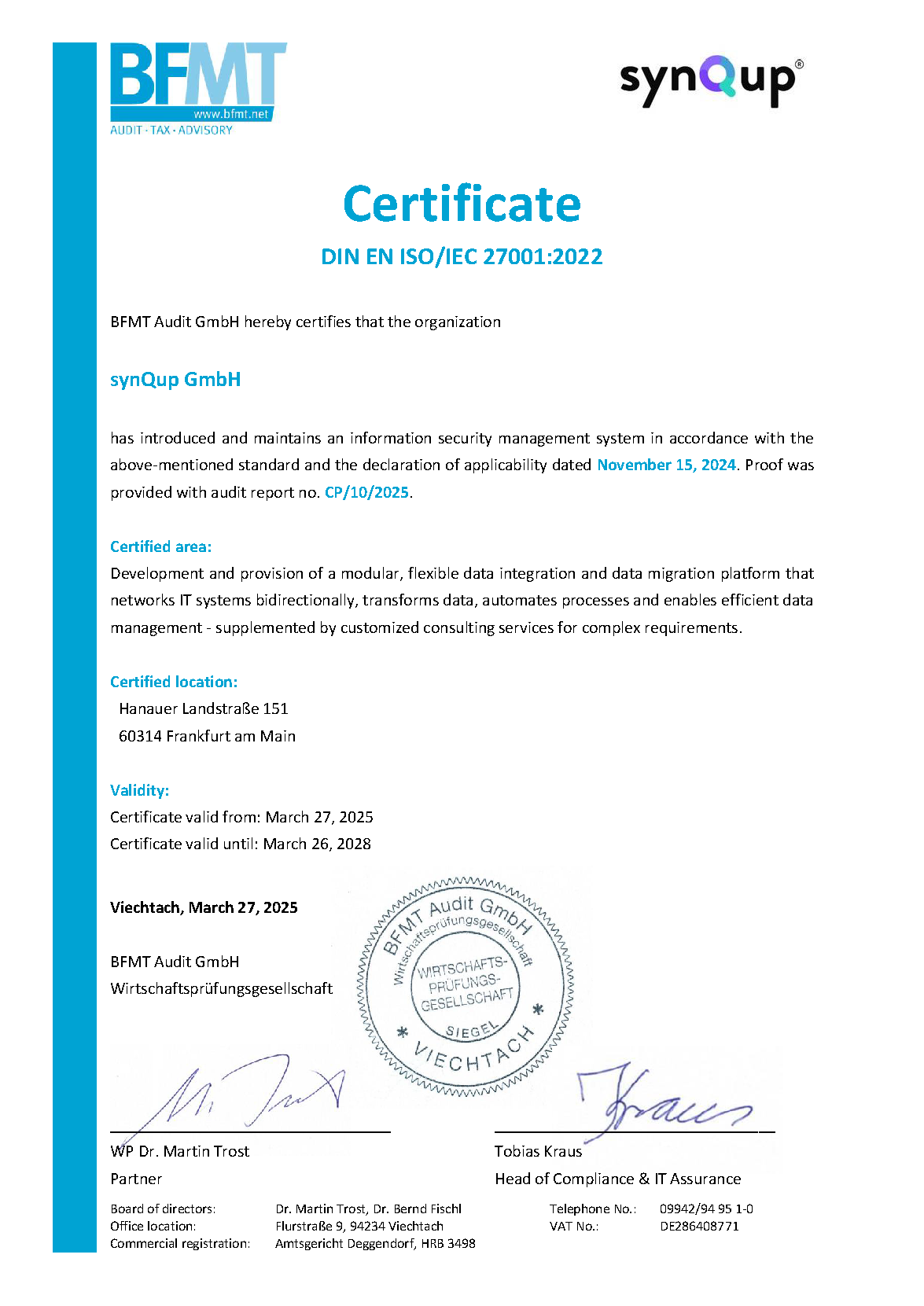Customer
This section describes how the module maps customers and customer addresses to Shopware and what configuration options are available.
Subsections
The following subsections are involved in mapping customers and their addresses:
output
└───customer
└───customer-build-cache
└───customer-anomaly-delta-count
└───customer-anomaly-check
└───customer-validate
└───customer-upsert
└───customer-delete
Customer addresses are mapped as embedded entities, so there is no separate subsection necessary.
Configuration
The following configuration is used for customers:
{
"subsections": {
"customer": {
"enabled": true,
"deleteMode": "soft",
"fallbacks": {
"paymentMethodShopwareId": null,
"languageShopwareId": null
}
}
}
}
Default Payment Method
Shopware requires to set a default payment method to customers. If you do not have payment methods available in your data you can use
the configuration key fallbacks.paymentMethodShopwareId to set the uuid of a payment method. That id will be assigned to a customer
during the initial import, if none is present in the transfer data.
Default Language
Shopware requires to set a default language to customers. You can use the configuration fallbacks.languageShopwareId to set the uuid
of a locale that will be assigned to a customer during the initial import, if none is present in your data.
Customer Mapping Table
Target: customer
Source: Elio\CommerceBundle\Document\Customer\Customer
| Target Field | Source Path |
|---|---|
* groupId |
customerInformation.customerGroup |
* defaultPaymentMethodId |
customerInformation.payment |
* salesChannelId |
channels.[0].identifier |
* languageId |
customerInformation.locale |
* customerNumber |
identifier |
* salutationId |
customerInformation.personalInformation.salutation.salutation |
* firstName |
customerInformation.personalInformation.firstName |
* lastName |
customerInformation.personalInformation.lastName |
| company | customerInformation.companyInformation.name |
* email |
customerInformation.email |
| title | customerInformation.personalInformation.title |
| active | active |
| legacyEncoder | password.encoder |
| legacyPassword | password.hash |
* addresses |
addresses |
* defaultBillingAddressId |
addresses.defaultBillingAddress - see "Default Billing Address" |
| defaultShippingAddressId | addresses.defaultShippingAddress - see "Default Shipping Address" |
Addresses
- All addresses (
Elio\CommerceBundle\Document\Customer\Addresses\RegularAddress) that are part of theCustomer::addressescollection are mapped to Shopware. - It is currently not possible to delete addresses from Shopware.
- Updates are possible since a
RegularAddressis identifiable. Addresses without a valid identifier are not mapped to Shopware. Identifier of addresses must be unique across all Customers, otherwise the address is invalid.
Default Billing Address
It is required by Shopware to set a default billing address. You can do this by adding tags to your address:
$address->addTag(AddressTags::DEFAULT);
$address->addTag(AddressTags::BILLING);
Default Shipping Address
If you want to map an address as default shipping address you have to add the corresponding tags to your address:
$address->addTag(AddressTags::DEFAULT);
$address->addTag(AddressTags::SHIPPING);
Customer Address Mapping Table
Target: customer_address
Embedded in: Synqup\Modules\Shopware6Bundle\Core\Shopware\Checkout\Customer\CustomerEntity
Source: Elio\CommerceBundle\Document\Customer\Addresses\RegularAddress
| Target Field | Source Path |
|---|---|
* customerId |
automatically determined by the module |
* countryId |
country |
* salutationId |
contact.personalInformation.salutation.salutation |
* firstName |
contact.personalInformation.firstName |
* lastName |
contact.personalInformation.lastName |
* zipcode |
zipcode |
* city |
city |
| company | contact.companyInformation.name |
| department | contact.companyInformation.department |
* street |
street |
| phoneNumber | contact.personalInformation.phone |

